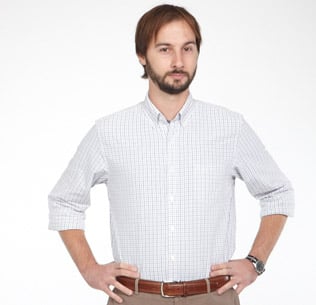The competition for a seat at the DC medical-marijuana table resembles a two-year-long college-application process. Since the law took effect in 2010, prospective growers and dispensers have gone through pages upon pages of waivers and applications, months of waiting, and a few rounds of cuts. Those still standing are vying for one of five dispensary licenses and ten cultivation-center licenses from DC. Here are two of them.
Montgomery Blair Sibley |
Montel Williams |
|
DC lawyer Montgomery Blair Sibley has been in the spotlight on many occasions: suing the Supreme Court, representing the “DC madam” in 2007, and getting suspended from legal practice, to name a few. He took on a new cause in 2010 when he started the DC Marijuana Growers Association and registered to open a cultivation center. Sibley wants to resolve the legal contradiction that medical-marijuana growers and dispensers find themselves in: a gray area in which their trade is allowed by state but not by federal law. He has filed a suit against President Obama and Attorney General Eric Holder to, as Sibley says, “cover my ass so in case they do give me a license they can’t arrest me.” |
Former talk-show host Montel Williams has become an advocate of medical marijuana since his multiple-sclerosis diagnosis more than a decade ago. In addition to starting the Montel Williams MS Foundation, he became involved with the Abatin Wellness Center, a high-end medical-marijuana dispensary that opened last year in Sacramento. Williams is part of a group seeking to open an Abatin dispensary in DC as well as two cultivation centers in the city’s Ward 5. He had a setback in December when the landlord of his planned Adams Morgan dispensary pulled out of the deal. Abatin’s team is searching for alternate locations. |
On opponents to medical marijuana:“They need to go down to Whitman-Walker Clinic and speak to those suffering from debilitating diseases like AIDS. You can’t spend the day with those folks and come away thinking anything other than whatever they need to do to manage their health problems is their business and nobody else’s.” |
On how marijuana has helped him:“When I turned to medical cannabis, it helped assuage not only some of my neuropathic pain—make it more bearable, livable, lessen its impact on my daily life—but it also had the ability to stop some of my spasticity and cramping. And I was still capable of functioning and working. This was the choice for me.” |
On the future of medical marijuana:“I believe it’s going to be a major campaign issue. President Obama simply lied in 2008 when he promised not to use Department of Justice resources against dispensaries. I think 35 million pot smokers are going to take him to task for that. Hippie baby boomers are all retiring, and they just want to sit around, let their hair grow, and get high. So sooner or later, they’re going to vote themselves the right to do so.” |
On the role of DC in the nationwide debate:“DC’s medical-cannabis law is one of the most stringent in the country. And what better place in America to ensure that patients who need it can get it than in the nation’s capital? Doing it right next door to any one of the political offices or agencies that come over and scrutinize it, so they can understand that this can be done in an effective way.” |
This article appears in the February 2012 issue of The Washingtonian.



















